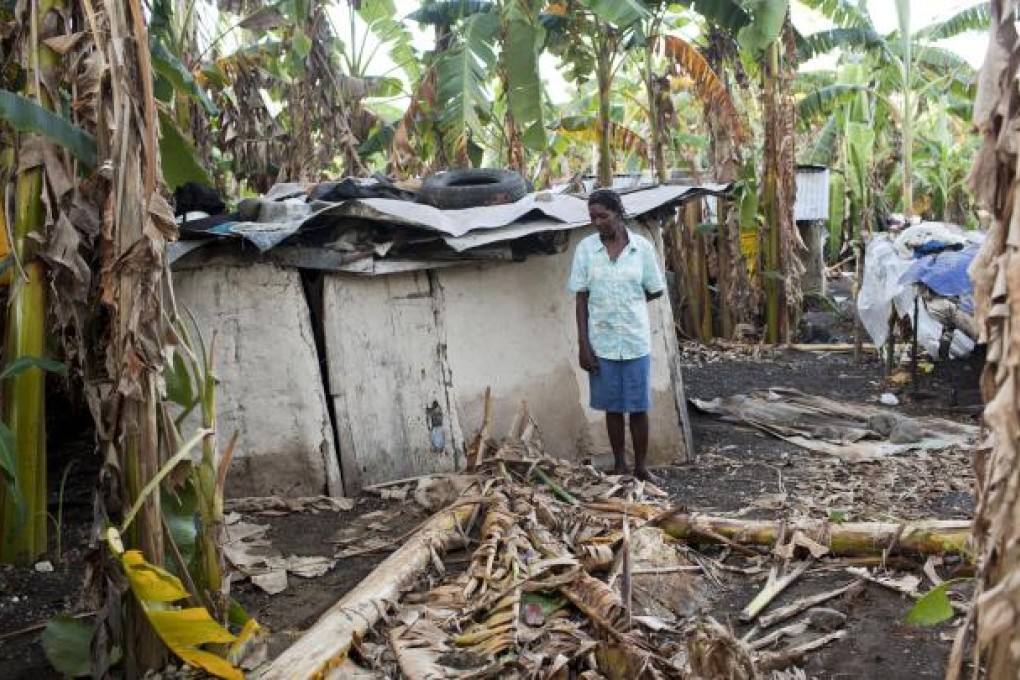Hurricane Sandy deals Haiti worst blow to recovery since earthquake

A woman who lost everything now gives her children coffee for meals because it quiets their stomachs a bit. Another despondent mother relives the awful moment when her 18-month-old baby was swept from her arms by a flash food. The bodies of a family of five killed in a mudslide still sit in a morgue unclaimed.
Haitians, who know well the death and despair natural disasters can cause, suffered mightily from Hurricane Sandy, which bashed the country's rural areas and killed at least 54 people.
Three weeks after the hurricane, Haiti, still struggling to recover from the earthquake in January 2010, is facing its biggest blow to reconstruction and slipping deeper into crisis, UN and government officials say, with hundreds of thousands at risk of hunger or malnutrition.
All around this hamlet and others nearby, the men and women who farmed bananas, plantains, sugar cane, beans and breadfruit stare at fields swept bare of crops, still flooded or coated with river muck that will probably kill off whatever plants are left. They had little, have endured much, and now need more.
"I do not know where we will find money for food and school now," said Olibrun Hilaire, 61, surveying his wrecked plantain and sugar cane farm in Petit-Goave that supported his family of 10 children and grandchildren.
As if the quake and Sandy were not enough, Haiti recently suffered a drought and the onslaught of another storm. Its food supply is now at risk following US$254 million in agricultural losses which have thrown 1.6 million people - about 16 per cent of the population - into dire straits.